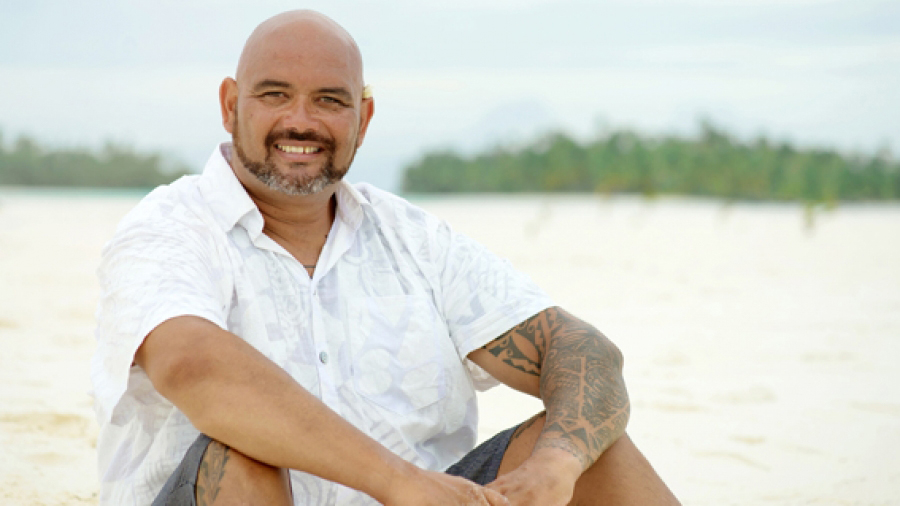What is the price of citizenship?
Saturday 6 May 2023 | Written by Thomas Tarurongo Wynne | Published in Editorials, Opinion

Columnist Thomas Tarurongo Wynne. Photo: CI NEWS/16040843
As we mark the coronation of a new King and the solemn Anzac services held across the Pacific, in Rarotonga and in Aotearoa, it is important to revisit the poignant question posed by Sir Apirana Ngata in his 1943 treatise, ‘The Price of Citizenship’, writes Thomas Tarurongo Wynne.
Ngata pondered whether the civilians of New Zealand, both men and women, truly grasped the significance of the joint participation of Pākehā, Māori, and Pacific soldiers in the First World War – the ultimate display of citizenship. At that time, the rights of Māori, Pacific soldiers, and their brothers in the Pacific, including the Cook Islands, were far from equal.
Despite their selfless service, and in some cases, the sacrifice of their lives for “King and Country”, returning soldiers faced frustrating obstacles and bureaucratic red tape in accessing their entitled war pensions. To qualify for a pension, a soldier had to be certified by the War Pensions’ Board as medically unfit due to their war service. This process could not be delegated to another authority, necessitating the soldiers’ presence in New Zealand for pension payment. This presented an insurmountable challenge for our Cook Islands returned servicemen, leaving them without the pensions they were rightfully owed.
While war medals were issued to all those who enlisted in the NZEF, including Māori and Pacific soldiers, the lack of understanding among New Zealand officials about the Pacific resulted in a grave oversight. All the medals for Niue were mistakenly sent to the Cook Islands and had to be returned to Wellington before finally reaching their intended recipients in Niue. Due to bureaucratic inefficiencies and a lack of comprehension, many medals failed to find their way to the rightful recipients among our Māori and Pacific soldiers.
Moreover, while European soldiers returning to New Zealand were granted land, Māori and Pacific soldiers who remained were denied the same opportunity. The frustration stemming from the non-receipt of deserved medals and the denial of land ownership rights culminated in civil unrest within the Cook Islands, particularly in its capital, Rarotonga.
In March 1919, the simmering frustrations of returned soldiers boiled over when they attempted to use their five-guinea clothing vouchers at European trader stores in Avarua, but to no avail. Inadequate supplies compounded the situation, and when European traders insisted that the soldiers spend their entire voucher at a single store, rioting erupted. Approximately 70 men resorted to smashing shop windows and looting equipment and supplies, plunging Avarua into chaos for two consecutive nights.
Order was eventually restored, leading to the trial of 20 men involved in the rioting. Ultimately, 12 were convicted, with five receiving five-year prison sentences that entailed their transfer to jails in New Zealand. Moreover, the cost of the damages caused during the riots was deducted from the final army pay of some soldiers. This raises Ngata’s poignant question once again: had these soldiers truly paid the price to be fully recognised as citizens of New Zealand? Their treatment upon return and the unequal treatment compared to their European and New Zealand counterparts suggests otherwise.
We are proud of our men and their service, a pride that has grown with every Anzac service, but we cannot ignore the whole story in that the King and Country they fought for, did not afford them the same rights as returning soldiers as they did their European and New Zealand brothers. Had they earned the rights as citizens, in blood sweat and tears they most certainly did.
And we are joined by people like the Cook Islands Remembrance Army, Cate Walker, Moe Hobbs, Isaac Solomon, Paula Paniani, The Mayor Frédéric Leturque and people of Arras, Madame Ettie A Rout, and the Ministries of Culture, the Cook Islands government and Cook Islanders across the globe and supporters that have endeavored to put these injustices right. Graves are restored, medals returned, and their stories remembered. For King and country, we ask as Ngata did, what is the price of citizenship, to New Zealand, and to a global world – a question we as Cook Islanders ask again in 2023.
And if we are to never forget the sacrifice and service of our brave men, ammunition carriers, tunnel diggers and soldiers, at the birth of our country as a colony, then we must also never forget the injustices, discrimination and prejudice they also faced at enlistment and on their return home, and that we still face today. Auraka tatou kia aka’ngaropoina.














































